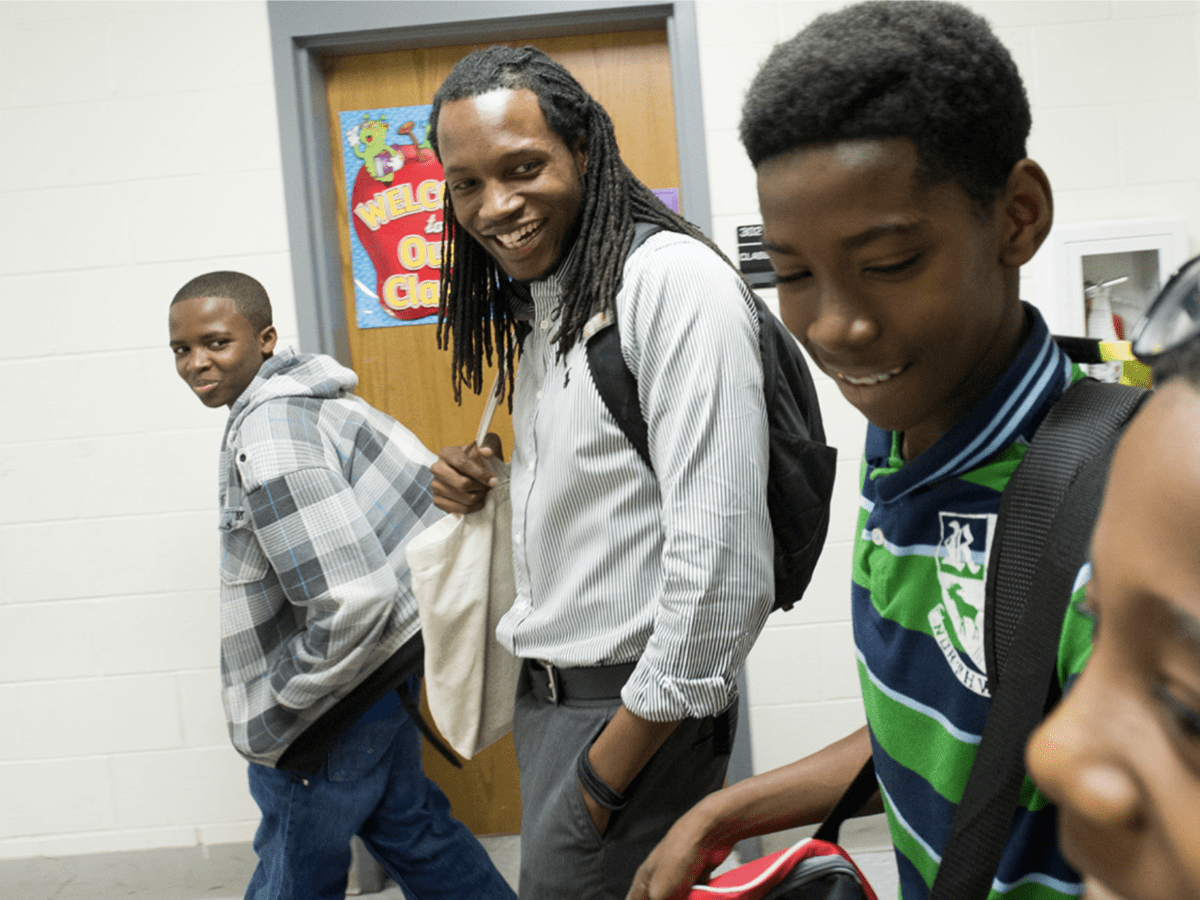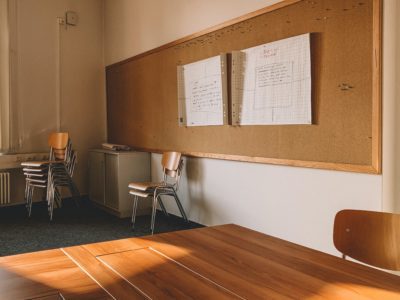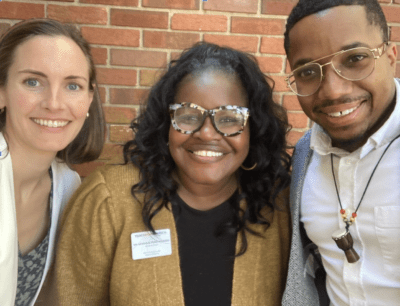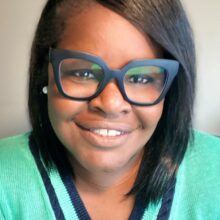
The following is part of my monthly column, One Day and One Goal: Expanding opportunity in N.C. I invite you to follow along as I share stories from classrooms and explore critical issues facing education in our state. Go here for past columns.
In honor of this season of gratitude and fellowship, I encourage all of us in this industry to count the many blessings we have around us, including the many career educators who continue to support students, families, and communities. With that, it feels fitting to mention the hard work and dedication of all Teach For America North Carolina alumni who continue to serve our classrooms, schools, and districts; and especially those who have undertaken critical development on their trajectory toward long-term education leadership through the Leroy “Pop” Miller (LPM) Fellowship.
This fellowship was established to honor one of the most dedicated educators — and most reluctant trailblazers — in North Carolina history. Leroy Miller, affectionately known as “Pop,” was a World War II veteran who returned to North Carolina in 1945 to become an industrial arts teacher in Charlotte-Mecklenburg Schools (CMS). After teaching for nearly two decades, Pop was finally convinced to take a role in school leadership in 1963. A decade later, as integration was beginning to rock the foundations of CMS, “district leaders wanted a principal who could oversee the change at all-white East Mecklenburg High.”
As his obituary so succinctly describes it, “They turned to Leroy ‘Pop’ Miller, who had earned a reputation for tough love and high standards, first at the all-Black West Charlotte High, then as he helped desegregate Carmel Junior High.”
Yet, even as one of the first Black principals in the state, and possibly the entire Southeast, Pop did not want to be remembered for his race alone. “I’ve always wanted to be a good person,” Pop said towards the end of his life. “When I go out and cut my grass, I want my yard to look better than any yard in this neighborhood … I’d say to the kids I wanted them to be the best in the state of North Carolina, and I wanted to be the best principal in the state.”
To a broader community Pop may be remembered for his groundbreaking historical leadership, but to the peers, students, and community members he served alongside, he is first and foremost remembered for his commitment to excellence. Pop set a standard of leadership that is as relatable as it is remarkable, as he was forced to address high teacher turnover and students sneaking off campus, as well as the cultural taboo of driving a car with a white female passenger.
Pop’s commitment to authentic leadership and his natural propensity toward coalition-building left an incredible impression on the education landscape in our state. His son Skip remarks that his dad’s willingness to lend a hand, as well as his fortitude when speaking up for himself and those he felt responsible for, paved the way for the leadership opportunities that continue to shape Charlotte and the state more broadly even to this day. Pop was also careful to encourage the capable educators around him to step up and make even more of an impact in their school community. As one of Pop’s contemporaries put it, “He could just pull together a group of leaders and folks would basically say, ‘Yes sir!’ and go do it.” Another calls Pop “an educator’s educator.”
These simple but hard-won affirmations are the mark of a true teacher-leader and were the inspiration for the fellowship that we at Teach For America established in Pop’s honor. Since its start in 2014, the LPM Fellowship has matriculated dozens of Teach For America alumni based in CMS who, with the help of a network of support, have gone on to become teacher-leaders in their own right.
Knitting a network together
As in any industry, excellence in teaching is cultivated through time, development, and the mentoring of more tenured peers and managers. Yet teacher attrition has been increasing in schools across the country since the pandemic, deepening a challenge low-income schools and communities have always experienced. To top it all off, development opportunities that will compensate for the loss of peer mentoring are difficult to find.
When Nina Franklin began teaching in 2012, teacher turnover was a noticeable issue. However, Nina found her footing among deeply-rooted teachers in her school and continued to seek out further development, eventually selected as one of the first LPM Fellows in CMS.
“As an LPM Fellow, I was happy to stay teaching at my [Teach For America] placement school, as I felt connected to my school community and students,” says Nina. “While I continued to hone my craft as a teacher in the classroom, the coaching and learning experiences through LPM gave me the opportunity to explore other areas of influence.”
Following the fellowship, Nina pursued a graduate degree in school counseling, and she returned to CMS to put her certification to use. Now, she has over worked nearly 10 cumulative years in CMS, where, she says, “Each and every day I use my experiences and perspective from my time in the classroom to influence my direct work with students, collaboration with teachers, and partnership with families.”
Like Nina, Kimberli Darling was also among one of the first LPM cohorts and was inspired to remain at her placement school in CMS for nearly ten years. In that time, she has been recognized twice as Teacher of the Year and has held varied roles and responsibilities — from classroom teacher, to leading a grade level team, then a subject area team, and overseeing special events like the eighth grade student graduation.
Kimberli’s interest in knowing the “behind-the-scenes” operations and administration led her to the LPM Fellowship, which has since set her on a trajectory towards school leadership. Some of the most important skills she developed, however, were the “soft” skills of networking while remaining grounded in authentic leadership.
“In the spirit of Leroy ‘Pop’ Miller, I’ve learned that it’s essential to build a community,” says Kimberli. “It’s not just about my class. It’s our entire space.”
Her time as a fellow, as well as her passion for inspiring teachers and students to bring their whole selves to the classroom, has transformed her into the kind of teacher others can look up to. She has been instrumental in new teacher orientation, as well as orientation for the entire teaching body, and takes time to mentor teachers whenever possible.
Expanding beyond CMS
This year, Teach For America North Carolina announced the expansion of the LPM Fellowship to include educators in Piedmont Triad and Eastern North Carolina counties, marking a new chapter of long-term teacher development across the state. I can only imagine what Pop would have to say about one of his eponymous fellows teaching at an all-virtual academy.
When asked why she wanted to join the LPM Fellowship, Butner teacher Christeanna Friend says that she “wanted the opportunity to network with other teachers across North Carolina, to see what is working well in their classrooms” as well as share her promising practices more broadly. “I wanted to make sure that I knew of opportunities that would benefit my students that I might not otherwise know about,” she continues.
Christeanna and the entire 2022 cohort of LPM Fellows are making strides toward achieving excellence for themselves, their students, and their broader community. And now, by knitting together a group of teachers beyond Charlotte, Pop Miller’s legacy will make even more of an impact in developing a wealth of educator knowledge and experience.
Sometimes, the test of an educator lies in navigating unprecedented challenges, relying on the knowledge, instinct, and compassion to move forward rather than well-tread practices. For Pop Miller, the unprecedented challenge was school integration. For our LPM Fellows — the majority of whom have already experienced teaching during a pandemic — “unprecedented” is now a part of everyday life. However, Teach For America is committed to equipping educators with the skills necessary to not only survive the unprecedented but develop strong, equity-minded solutions.
I couldn’t put it any better than Kimberli, who remains an inspiring example of our fellows’ efforts in education: “I’m not sure I would’ve been able to do half of those things if it weren’t for Teach For America. It was a kind of preparation to answer questions you weren’t sure you were going to be asked.”
Recommended reading



